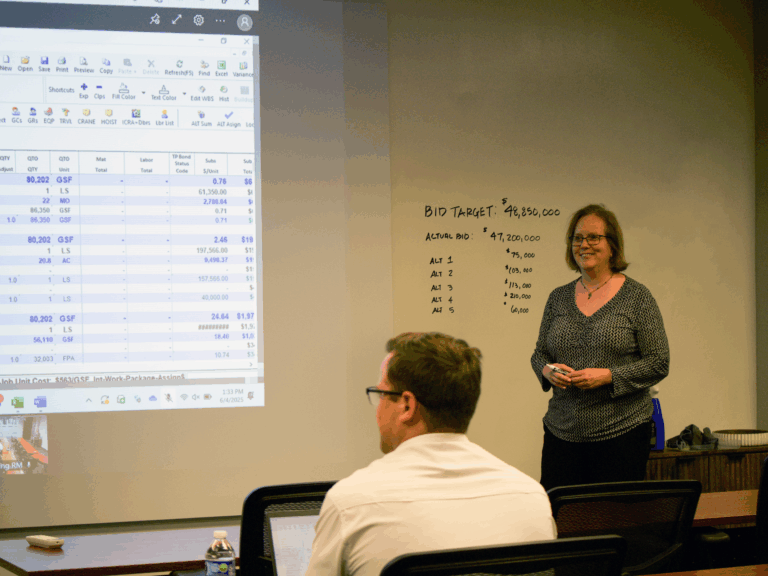
From remote learning to socially distanced socializing, it seems like every facet of the college experience has been impacted and reimagined during the pandemic. Recruitment for internships and co-op positions also got a virtual makeover in 2020 with career fairs traded in for video conferencing calls and interviews done through web cams, instead of face to face. As our industry begins the next round of college recruitment, it’s clear that virtual recruiting is here to stay — at least for now. It’s not just recruitment. One report shows that last year 86% of organizations used virtual technology to interview candidates for new jobs. So, even if you’re done with your co-op rotations, you may likely find yourself interviewing for a full-time position virtually this year.
Instead of dwelling on the limitations of virtual interactions, I’d recommend making this online style of recruitment work for you. Some of the downsides of video meetings can actually work in your favor and shine a light on your capabilities, if you plan ahead.
1. Flexible
In 2020, we all had to learn to be a little more flexible. Whether it was finding ways to learn or work from home or adjusting to mask mandates and social distancing requirements. Flexibility is and has always been an asset in our industry. Challenges arise. Schedules are impacted. Clients’ needs change. And our project teams and employees have to be flexible and able to adapt quickly. So, when you are participating in virtual recruitment, showcase your flexibility whenever possible. If your video freezes or you have technical difficulties, don’t get flustered. Have the meeting’s phone dial-in information ready in case your internet drops out. Showing recruiters that you can keep a cool head and overcome even minor setbacks shows them you’re more likely handle the major challenges as well.
2. Focused
Do you find it harder to pay attention in virtual classes? It’s easy to understand. You’re staring at a computer screen and don’t have the benefit of in-person interaction. The same can be true for virtual meetings or interviews. You have to work harder to stay focused and seem engaged. What may be natural pauses in a face-to-face conversation can seem like awkward silences in a video call. Just breathe, stay focused, and prepare ahead of time. Avoid distractions by putting your phone out of sight and on silent. Research the company you’re interviewing with and stick a few post-it notes to your screen with questions to ask or bullet points you want to talk about. You can glance at your notes and keep the conversation rolling. In this case, you’re showing not just your ability to pay attention but to focus on the individual and their company with well thought-out questions. That kind of preparation is impressive to employers looking to hire client-focused team members.
3. Detail-Oriented
When you were first learning how to write a resume, you probably heard over and over the importance of proof-reading. After all, who wants to hire someone who claims to exhibit “atention to detaile” yet clearly doesn’t take the time to spell check. Not properly setting up your video call is the 2021 version of spelling errors on your resume. Imagine you’re a company recruiter and you log on to meet a potential intern and their unmade bed is in the background, their mic is on mute, and halfway during your company pitch their cat strolls over the keyboard. Life happens of course, and we all have to be understanding of remote learning and working situations. However, in this example, all these issues could have been planned for and avoided with a little attention to detail. Set up your video interview space ahead of time. Aim your camera at a clean wall or corner and make sure everything looks put together. Set up in front of a window or a light if possible and make sure your face is well lit and clearly visible. Make sure pets are secured and let roommates, spouses, children, or whoever else lives in your space know that you are in a call and can’t be disturbed. If you don’t take these simple steps to plan and take control of the details in your interview setting, then you’ve already shown a potential employer you may not pay attention to details in your assignments — a big mark against you before you’ve even had the chance to sell yourself.
I’ll be honest. I miss on campus recruiting. I love meeting students, talking face-to-face, and participating in social recruitment events. But in the past year, I’ve also been able to have meaningful interactions with students and recruit some amazing candidates to participate in our co-op and interview programs. So, this year make virtual recruitment work for you and shine in the more limited, virtual setting so recruiters know you can overcome, adapt, and prepare for whatever challenge is thrown at you. That’s the kind of intern and future employee any company in our industry would be lucky to hire.

